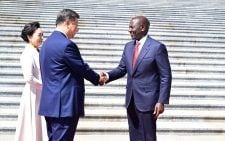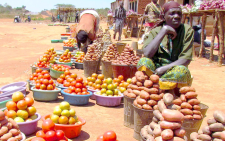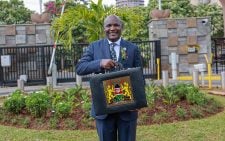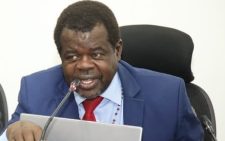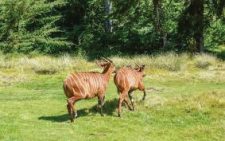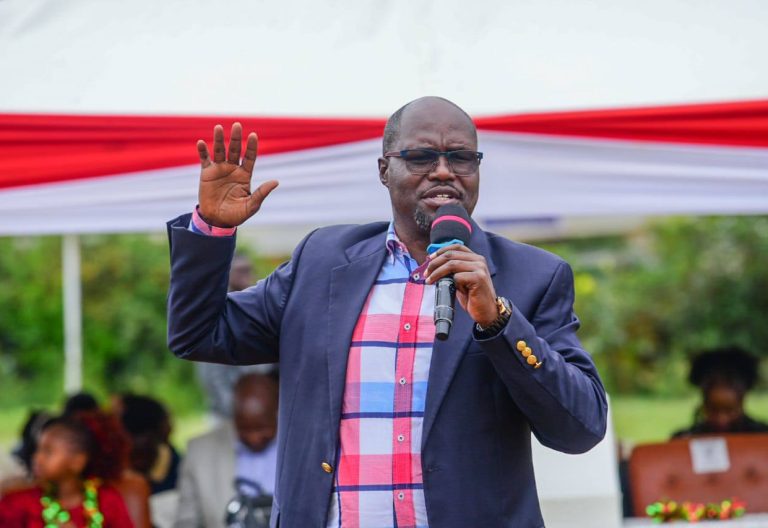Global congress seeks climate resilient, food secure Africa
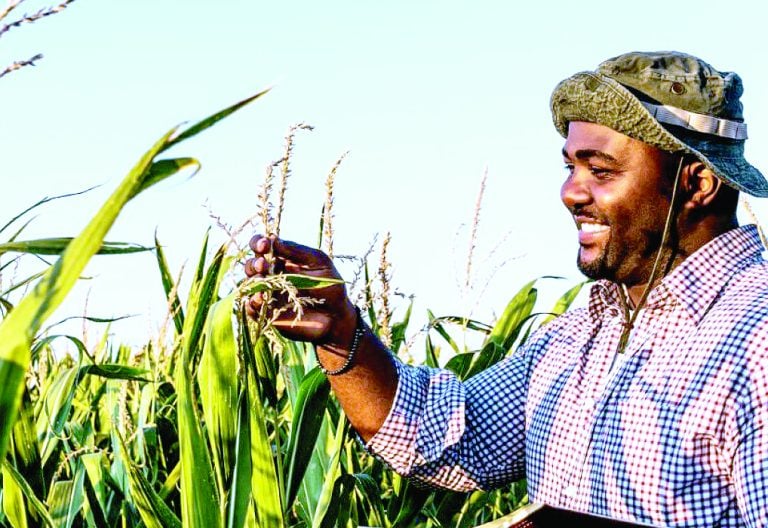
One of the most important international meetings this year, seeking innovative scientific solutions to the greatest challenges facing humanity, begins in Nairobi today.
Major global challenges currently include climate change, land and ecosystem degradation, biodiversity loss, food insecurity as well as malnutrition, rural poverty, and gender and social inequality in agrifood systems.
These compelling challenges threaten the sustainability of food, land, and water systems, leaving the most vulnerable people and communities, particularly those living in Africa, at greatest risk.
Recognising the urgency of these challenges, CGIAR (formerly the Consultative Group on International Agricultural Research), the global research partnership focused on transforming food, land and water systems, has convened a special forum in Nairobi.
CGIAR and the Kenya Agricultural and Research Livestock (KALRO) have brought together the world’s leading scientists and decision-makers in agriculture, climate and health for the very first CGIAR Science Week, which kicks off today and runs until Friday, under the theme ‘With Science, We Can’.
CGIAR has a mission of reducing poverty, enhancing food and nutrition security, and improving natural resources.
Based on a scientific platform highlighting the urgent need for a food, nutrition, and climate-secure future, the CGIAR Science Week will be a key moment for the world to advance research and innovation, inspire action, and establish critical partnerships to secure investment in sustainable food systems to nourish people and planet.
Drawing on CGIAR science and partnerships from around the world, the inaugural CGIAR Science Week will engage the community of global leaders in research, policy and development working for food, nutrition, and a climate-secure future in active dialogue focused on harnessing and scaling science and innovation.
Showcasing innovation
Participants will learn about CGIAR Research Portfolio 2025-2030 through dedicated strategy dialogues on science programmes and accelerators, and discover cutting edge science from CGIAR centres worldwide through science talks, innovation showcases, and research workshops.
The week-long event will also provide delegates from around the world with an opportunity to see, first-hand, transformative innovations improving the lives of vulnerable communities in an exhibition and to explore CGIAR and partner labs and research stations to see science in action during field visits.
One of the key scientific institutions at the CGIAR Science Week is the Centre for International Forestry Research and World Agroforestry (CIFOR-ICRAF), whose CEO and Director General Eliane Ubalijoro will be one of the featured speakers.
CIFOR-ICRAF’s Trees for Resilience exhibition will highlight the contribution of trees to transforming food systems and building the resilience of communities to climate change. It will feature digital solutions that help farmers restore degraded lands, improve agricultural productivity and achieve food security.
Seedlings, tree-based products, and knowledge resources that highlight the practical applications of agroforestry for land restoration and improved livelihoods will be displayed. Direct engagement with CIFOR-ICRAF scientists offer insights on the importance of planting the right tree, in the right place, and for the right purpose.
The exhibition and a field trip to the CIFOR-ICRAF research and innovation laboratories will help in a better understanding of how trees can combat climate change, enhance biodiversity, strengthen food systems, and provide solutions to the global challenges.
A special day during the CGIAR Science Week has been dedicated to unpacking the status of women in agrifood systems. The yawning gender gap in African agrifood systems and women farmers’ low uptake of climate resilient innovations continue to hinder Africa’s capacity to cope with climate change.
Further, these gender gaps continue to deeply undermine rural women’s ability to contribute to and benefit from agricultural innovations.
In Africa, where agriculture holds the largest transformative potential, with most economies being dependent on agriculture, the gender gap is costing these economies massive losses and stifling food systems transformation.
Meaningful, impactful action toward bridging these gaps requires compelling, actionable evidence for practice and policy action.
Together with the CGIAR GENDER Impact Platform, African Women in Agriculture Development (AWARD) will present up-to-date data and discuss Africa-specific recommendations and strategies for gender transformative solutions that can drive equitable agri-food systems.
Experts at the CGIAR Science week will discuss the forthcoming report on ‘The Status of Women in African Agrifood Systems’ that analyses evidence on women’s role in agri-food systems in the continent.
Another member of CGIAR that is supported by the CGIAR Fund, the International Centre for Agricultural Research in the Dry Areas (ICARDA) is also actively participating in the CGIAR Science Week. ICARDA is a not-for-profit agricultural institute that aims to improve the livelihoods of the resource-poor across the world’s dry areas.
ICRARDA plays a critical role in the conservation, development, improvement, and dissemination of climate resilient, market-driven crop varieties that provide a crucial defence against extreme temperatures, water scarcity, the emergence of new pests and diseases, and nutritional insecurity.
Improved varieties
Over the past four decades, ICARDA’s improved cereal and legume varieties have been tested and released by national programmes in partnership with ICARDA and adopted by farmers worldwide, generating net benefits of approximately US$850 million each year.
ICARDA’s new varieties combat a range of challenges typical in dry regions. They can flourish in areas where rainfall is low and erratic, offer great and more stable yields, and have a higher tolerance to stress factors such as diseases, pests, drought, and extreme temperatures. Many varieties also offer improvements in nutritional value and quality.
ICARDA packages its technologies and innovations into integrated solutions that maximise yields from the new varieties. These include better resource management, cost-effective technology transfer, connections to the private sector and research institutions, and training and capacity development.
ICARDA’s programmes, gene bank network, and international nurseries develop climate-smart crops alongside national agricultural research system country partners and global research institutions. It follows the guidelines of the CGIAR Excellence in Breeding Platform to optimise future breeding efforts.
The research centre’s innovations help countries and communities strengthen their adaptation to climate change and transition towards food and nutritional security. It manages a gene bank network containing some 157,000 samples of landraces and wild relative species of major dryland cereals, food legumes, forage and rangeland species.
ICARDA and its national partners utilise the genetic resources conserved in the gene bank to develop improved lines, which are shared worldwide through its international nurseries for a wide range of agricultural systems.
The genetic resources maintained in the ICARDA gene bank are used to develop and distribute improved varieties for a wide range of agricultural systems across global drylands as an integral part of an international nursery trailing system.
Through this system, co-operators are provided with genetically-diverse germplasm to evaluate and select under their own agro-ecological conditions and socio-economic contexts. ICARDA research experts provide integrated packages that help farmers to implement innovations and new approaches, and allow them to flourish.
ICARDA empowers women in agriculture, challenging gender norms in Ethiopia and Morocco through SASA, radio and theatre for inclusive communities. ICARDA’s ground-breaking project, the ‘Solar Mobile Dryer’ for maturing and drying dates, won the Date Palm Innovation Technology Excellence Prize for 2024.
